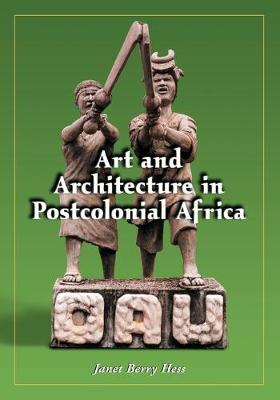The struggle of African nations to achieve independence from colonial rule was a momentous event in world history, and among the most influential features of the independence era was the art that it produced. With decolonization, Africa was thrust into nation building and into the related process of negotiating its popular culture, integrating modernism while simultaneously sustaining native tradition, and thereby producing a form of uniquely transitional art. This work examines the complexity of popular artistic culture in the era of African nationalism, with a special focus on the influential independence era in Ghana. Chapters One and Two consider the ideologies of the Convention People's Party and the National Liberation Movement in Ghana and their respective effects on colonial artistic production. Chapters Three through Six discuss the relationship between architecture, museum exhibitions, and political displays and the growing nationalist ideologies, revealing the extent to which African art has since its inception been a medium for political, social, and historical commentary.~ Chapter Seven investigates artistic practices associated with bodily expression and explores the manner in which these practices were influenced by post-colonial authority, while the final chapters focus on the intangible forms of art, such as the communal performance, that have been so endemic to African art history.
- ISBN13 9780786420766
- Publish Date 1 November 2005
- Publish Status Active
- Publish Country US
- Imprint McFarland & Co Inc
- Format Paperback
- Pages 220
- Language English
